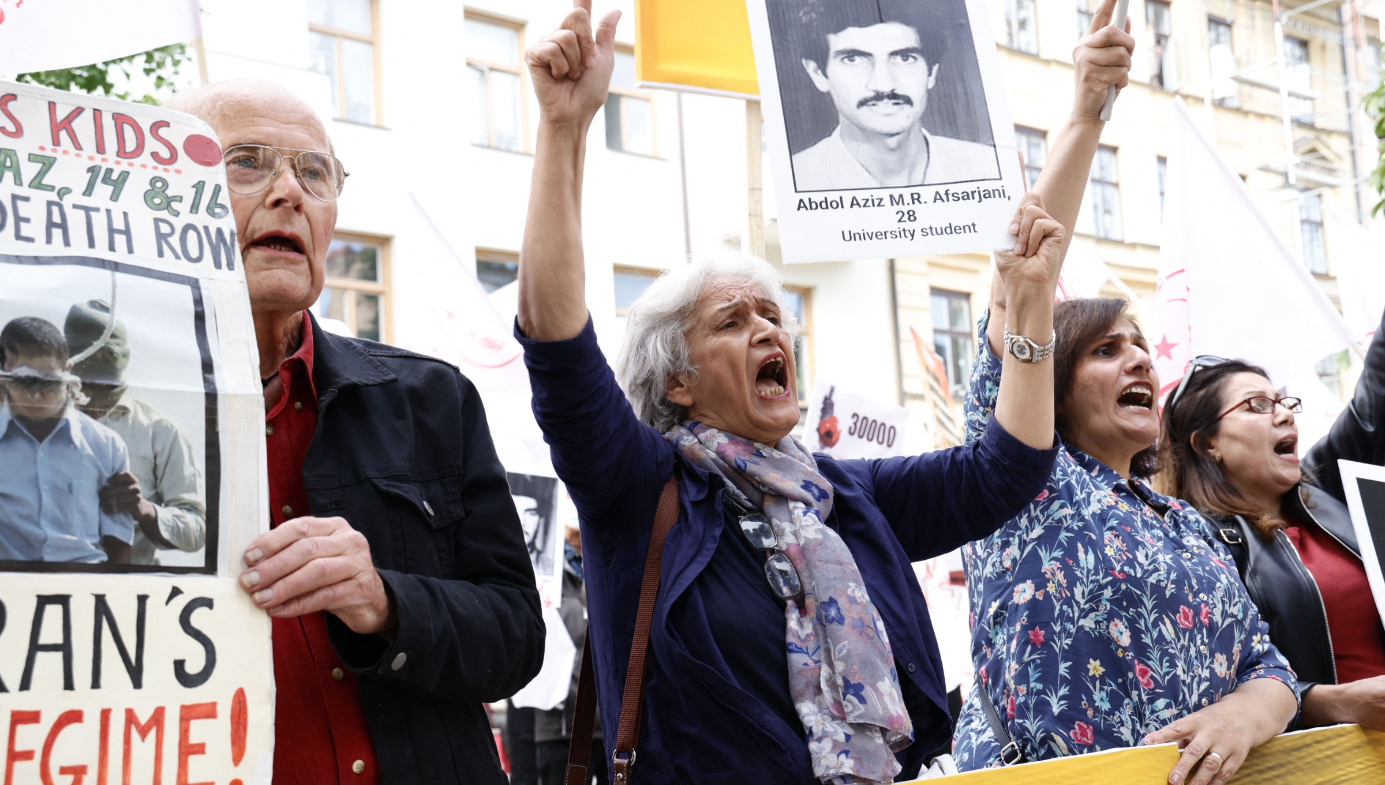Top Stories
Cosmic Justice and the Expectation Gap
The issues of our time demand a more serious approach.

The quest for “cosmic justice”—a term coined by the economist Thomas Sowell in his book of the same name—describes the efforts to “mitigate the undeserved misfortunes arising from the cosmos” in pursuit of perfect equality between individuals and groups. While traditional forms of justice compel individuals to abide by the same set of social and economic processes despite natural differences between people, cosmic justice imagines society as an omniscient anthropomorphic entity responsible for resolving all inequities. But when expectation fails to meet reality, the purveyors of cosmic justice imagine something nefarious is afoot, and inveigh against whichever group their ideological priors persuade them is to blame.
Although Sowell used this concept to critique the social justice Left, the quest for cosmic justice is part of a much broader phenomenon that cuts across the partisan divide: the weaponization of bitterness for personal and political gain. Americans are angrier at each other than at any time since Watergate. Republicans and Democrats harbor sharply negative attitudes towards their respective opponents that policy differences alone can’t explain, with nearly a third of each party disapproving of their children marrying between parties and nearly a quarter of each reporting the country would be better if vast swathes of the other party would drop dead.
Charles Duhigg unpacks this state of affairs in his long Atlantic essay “The Real Roots of American Rage“—fewer than half of voters said they were deeply angry at the other party’s presidential nominee in 2012. But by 2016, that proportion had shot up to 70 percent. In 2001, just eight percent of Americans told Pew they were angry at the federal government. By 2013, that number had more than tripled. And Americans, particularly the younger generations, are increasingly resentful of the rich.
But more than just partisan antipathy has been on the rise. Although hate crime statistics are notably shoddy, the spike in anti-Semitism in recent years and the prevalence of white nationalist sentiment online point to growing ethnic tensions in the country. About six in 10 Americans say race relations in the U.S. have become worse under President Trump and 65 percent of Americans say it is now more common for people to express racially insensitive views, according to Pew data. And a new flood of partisan invective follows each new cultural collision, from the bitterly contested Kavanagh hearings to the race row that engulfed the Covington kids. Politically, ethnically, culturally, and otherwise, antipathy seems to have become the baseline emotion in American life. But why?

The Expectation Gap
What we know about anger as an emotion can help us understand our collective state of acrimony. Anger is often a consequence of disappointment, according to psychology author Mary C. Lamia, allowing us “to continue idealising what could have been while consciously denigrating it.” Dr. Z Colette Edwards of the online health care blog Insight M.D. agrees: “Disappointment is directly linked to one’s expectations; when our expectations and the outcome do not match. The occasional disappointment doesn’t normally trigger anger. The unwillingness to accept the reality—that you didn’t get what you expected—is what triggers anger.” In this light, the nationwide explosion of anger can be understood as the outgrowth of a major expectation gap in our culture, the distance between what we feel entitled to and the reality of not receiving it. Anger is a means of compensating for that gap.
There is certainly reason for disappointment in the West. Millennials are the first generation anticipated to have worse social and economic outcomes than their parents in America. Life expectancy has declined over the past few years, a trend unseen since the Spanish Flu Pandemic. Levels of depression and anxiety have reached alarming levels and suicide rates have increased by about 33 percent since 1999. The majority of Americans live paycheck to paycheck according to various surveys. Entrepreneurship is in decline, with 100,000 fewer businesses started per year than just over a decade ago. Drug overdoses have overtaken car accidents as the most likely cause of accidental death in America. The economy is increasingly stratified and unequal, with lower levels of trust in our institutions and in each other.
And all of this is happening in the richest and freest country in the world. Despite our relative comfort and security in respect to most of human history, the groundswell of hostility should come as little surprise in light of the chasm between expectation and outcome.
Bitterness, Left and Right
The pursuit of cosmic justice aggravates the human proclivity for scapegoating and allows all-encompassing grand narratives to proliferate. After all, righteous anger feels good, and it is cathartic to be part of a group with a common enemy. It’s much more satisfying to write a furious op-ed about how terrible things are and the malevolence of those responsible than it is to calmly discuss or defend the trade-offs required by a given policy or cultural compromise. The human mind responds most passionately to storytelling, which necessarily involves a protagonist (us) and an antagonist (them). The psychologist Jonathan Haidt refers to this phenomenon as common enemy politics, illustrated by the Bedouin proverb “me against my brother, my brother and I against my cousin, and all of us against the stranger.”
But pursuit of cosmic injustice and the malice it inflames find expression in different ways on either side of the political aisle. On the Left, bitterness stems from the conviction that unequal outcomes between groups have been engineered by hegemonic and exploitative power brokers. The expectation gap between perfect equality and our unequal social and economic landscape leads to blame and invective rather than engagement with the complex interaction of variables that advantage some and disadvantage others. The dark green environmentalist movement, meanwhile, insists that climate change and the disruption of the natural environment are not the byproducts of progressive modernization that has largely benefited humanity, but rather the cynical apathy of venal capitalist elites. In an effort to close the expectation gap, their climate activism then becomes a religious crusade to recover Eden from its wicked rulers rather than a fact-led ecological project that requires coalition-building and cooperation.
Meanwhile on the Right, the breakdown of the family unit and the decline of social capital is chalked up to the moral zealotry and romanticism of the baby boomers’ recklessly hedonistic and selfish counterculture. If not for President Johnson’s Great Society programs, the social acceptance of single parenthood and divorce, the mainstreaming of radical progressivism, and the excesses of post-civil rights liberalism, the American Dream would have been realized and our social fabric would be intact. In this telling, the counterculture was not a natural response to Jim Crow, oppressive sexual mores, and a disastrous war in South-East Asia, but the collective convulsion of narcissistic college students and ungrateful bohemian prima donnas rebelling against their own WASP backgrounds. Conservatives can therefore explain the ascendance of Fox News, Rush Limbaugh-style talk radio, and Donald Trump as the justifiable reaction to liberal secular degeneracy—the blame for America’s problems lie at the feet of the modern Left rather than broader systemic shifts involving globalization, social liberalization, corporatism, automation, or perhaps just the entropic nature of change itself.
And on the far-Right, this cultural resentment smoulders into conspiratorial fear and paranoid loathing. The demographic decline of white majorities in the West is portrayed (often with barely disguised anti-Semitism) as a development orchestrated by a conspiracy of internationalist cosmopolitans and globalist elites.
In each case, a cosmic mistake is said to have unraveled society and a particular group is held responsible. The quest for cosmic justice is about uncovering hidden and malevolent agency, and societal problems are attributed to the characterological flaws of repugnant or overzealous decision-makers against whom we can rage with righteous fury. This provides unscrupulous demagogues and true believing fanatics with a powerful instrument of mobilization at the expense of the appreciation of complexity needed to understand and solve problems.
Beyond Bitterness
The impulse towards cosmic justice is entirely human, but it distorts reality. Life becomes something rather ugly—a theatre of marionettes manipulated by villainous puppeteers. If we could just expose and punish them—the bankers and the corporations, the warmongers and the globalists, the libertine hippies and the decadent secular liberal humanists, the migrants and the Muslims, the Zionists and the Jews—a better and redemptive world will be forthcoming.
The issues of our time demand a more serious approach. As James Baldwin wrote, “I know that people can be better than they are. We are capable of bearing a great burden, once we discover that the burden is reality and arrive where reality is.” Closing the cultural expectation gap and abandoning the quest for cosmic justice would help us to face reality. This is a necessary precondition to improving the conditions of our lives and our societies.






